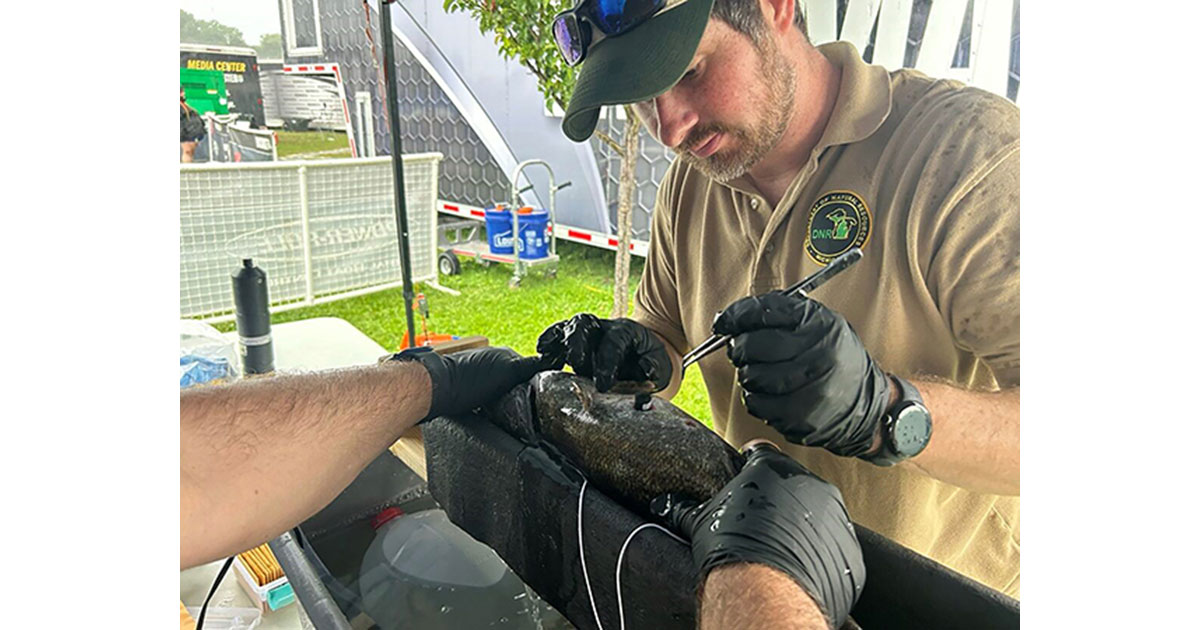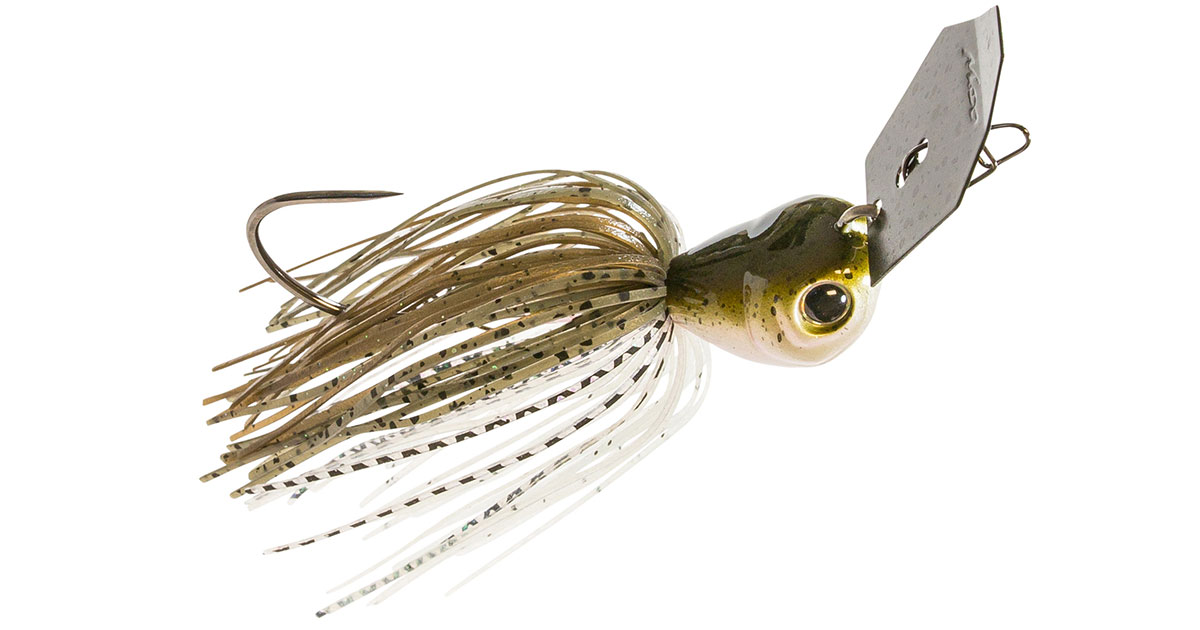- Details
By JAN-MICHAEL HESSENAUER, Fisheries research biologist, Michigan Department of Natural Resources
 DNR Lake St. Clair Fisheries Research Station has been extensively monitoring the lake’s smallmouth bass population for decades
DNR Lake St. Clair Fisheries Research Station has been extensively monitoring the lake’s smallmouth bass population for decades
Lake St. Clair, nestled between the St. Clair and Detroit rivers in southeast Michigan, is one of the premier smallmouth bass fisheries in the world.
As reported in “Status of the Fisheries in Michigan Waters of Lake Erie and Lake St. Clair 2022,” numbers from the Michigan Department of Natural Resources Master Angler program – in which anglers can submit documentation of trophy-sized catches of more than 50 species – shore up the lake’s reputation as a trophy smallmouth bass fishing hotspot.
“Statistics from the Master Angler program indicate that Lake St. Clair is the premier waterbody in the state for trophy smallmouth bass,” the report stated. “With 46 entries in the Master Angler program in 2022, Lake St. Clair represented 29% of the total smallmouth bass entries statewide.
“The continued strong representation of Lake St. Clair and adjoining waters in the smallmouth bass statewide Master Angler program is likely a reflection of an abundance of trophy-size smallmouth bass in the lake, a high degree of angler effort targeting the species, and widespread practice of catch-and-release among smallmouth bass anglers.”
- Details
Z-man Report
 Z-man Chatterbait
Z-man Chatterbait
In the years since the Original ChatterBait ascended to dominance on the national bass scene, a new lure-category sensation emerged, evolved and snowballed catch rates.
Newer, refined Z-Man bladed jigs offered subtle variations in vibration and unpredictable hunting action, as well as delivering select situational tools, such as the ChatterBait Elite EVO™ and WillowVibe™, which shine both shallow and deep.
Seems like a no-brainer now. But the enchantment of a ChatterBait and its propensity to produce epic outings often depend on the details. A quick change in the cadence. Reading the blade’s musical language. A little tweak in lure or trailer selection, color or jighead weight can bring about radical results. Read on and learn more . . .
(1) Color Coordinate – A common head-scratching bladed jig puzzle, color-coding your chosen ChatterBait with the right soft plastic trailer is usually easier than we make it. Sure, you can run wildly contrasting combos like a pearl-pattern with a chartreuse/red, or a ‘glitter-bomb’ ChatterBait Elite EVO with a fire-craw ChatterSpike for a different look.
Or, to follow the lead of pro anglers who face this riddle every day, you might opt instead to color-match your chosen trailer to the bladed jig itself. For imitating crayfish, give ‘em a double dose of green pumpkin. In stained or tea-colored water, try black and blue all over. In high, dirty water, especially in spring, it’s all fire-craw orange, all the time. Or, for mimicking openwater baitfish, a one-two punch of shad-white to shad-white’s just right. You get the idea. The goal should mostly be to create one cohesive, color-coordinated critter—a continuous lure that impersonates nature rather than a cosplay convention.
- Details
Mercury Report
The life of a professional tournament angler is fascinating. It looks pretty cool from the outside looking in, like the rodeo cowboy traveling from town to town following their passion and the promise of glory. Pro anglers see the country, fish new and beautiful lakes, and often make catching fish look easy come tournament day.
But there's much more to it. Making a career out of tournament fishing requires a lot of hard work, planning and dedication both on and off the water in order to succeed.
To help reveal what it’s really like to be a tournament angler, we reached out to a handful of bass pros at the end of the 2022 season and asked them a series of questions about their unique lifestyle.
Where do you prefer to stay while on the road?
Major League Fishing Bass Pro Tour angler Greg Vinson, of Wetumpka, Alabama: I love renting houses through Airbnb. We used to pack up in small hotels like sardines, but now, fellow Mercury pro Bradley Roy and I rent a house. We're at tournaments for over a week, and it starts to feel like home. I typically book them, but it's usually a winner when Bradley finds one or has a family or friend connection.
Bassmaster Elite Series angler Stetson Blaylock, of Benton, Arkansas: I've done it all over the years. Camping was the most fun when my wife and kids traveled with me, but it was also the most work. For the last couple of years, traveling without them, I have preferred to rent houses or cabins. Hotels are sometimes the only option, but that's not my preference.
Bass Pro Tour angler Brent Ehrler, of Redlands, California: Rental houses are always the best. It's nice to have space and the ability to cook and meal prep for the week with a full kitchen.





